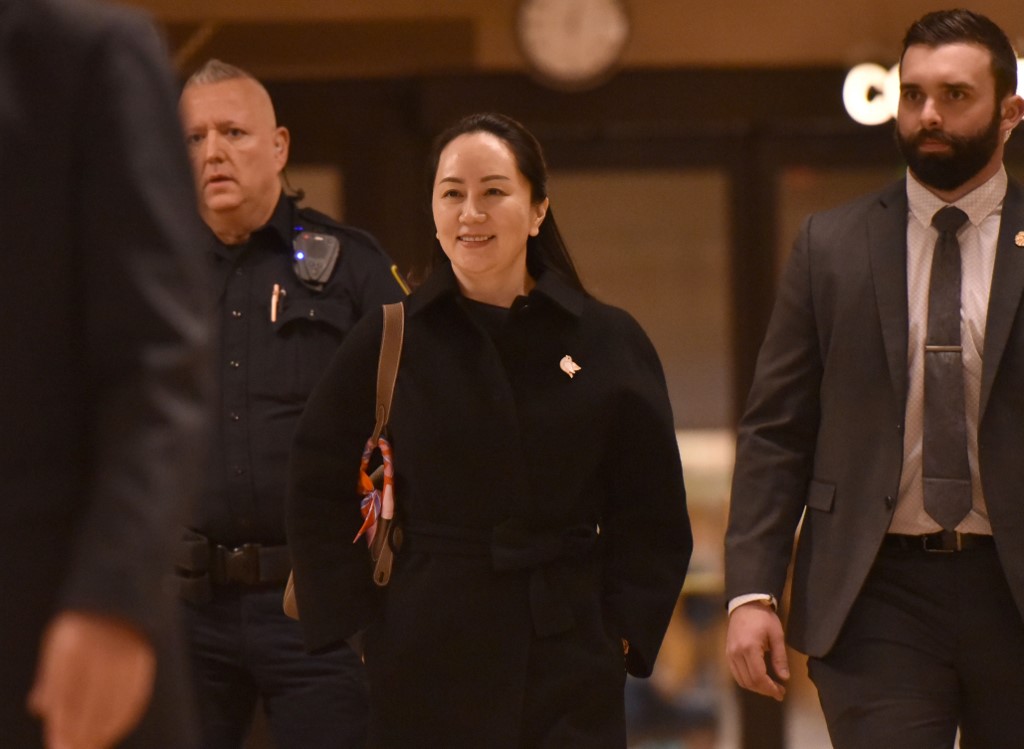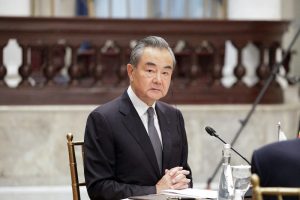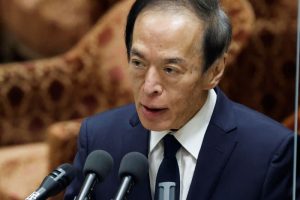(ATF) China Central Television says it believes Meng Wanzhou, CFO of Huawei under house arrest in Canada while hearings continue on whether she should be extradited to the US for financial dealings with Iran – has been framed for political reasons.
CCTV, a prominent state media outlet said the case highlighted risks for companies that operate internationally, saying: “There are many risk factors before and after Meng Wanzhou’s arrest, which send a significant warning for Chinese companies going overseas.”
Meng was arrested was arrested by Canadian Border Services agents at the request of the US FBI in December 2018, while transiting through Vancouver. The United States accused Meng Wanzhou of financial fraud. Key evidence came from a PowerPoint document obtained after HSBC executive met with Meng in 2013.
According to a CCTV reporter in Canada, the evidence shows that Meng Wanzhou did not conceal facts from HSBC and claimed that she was the victim of a “fraud”, although it had not suffered financial losses, because the United States did not punish HSBC – but opted to bypass HSBC and prosecute Huawei and Meng Wanzhou instead, despite her having no direct relations with the United States.
Therefore, the Meng Wanzhou affair was a political case planned by the United States. HSBC had cooperated with the United States to “sell customer information and frame Meng Wanzhou,” it alleged.
After this, China arrested two Canadian citizens – Michael Spavor and Michael Kovrig – on dubious evidence to gain leverage on Ottawa in an attempt to free Meng.
The impact of the Meng Wanzhou case has gone beyond a simple judicial dispute and has attracted global attention.
‘Be cautious’
CCTV said from the public evidence in the case and information disclosed by the media, the arrest of Meng is very significant for Chinese companies going overseas.
The report said Chinese businesspeople should be cautious for many reasons. Firstly, the US may have spent a long period of time gathering evidence, as the US case against Meng may have started from 2012 to 2013.
A second troubling aspect was the broad reach of the US investigation. According to public media reports, HSBC signed an extension agreement with the US Department of Justice at the end of 2012 due to its own violations.
In 2013, the US Department of Justice and the FBI ordered a US financial investigation company to probe HSBC. According to John Flint, the bank’s former chief executive: “There were 200 to 400 US surveillance personnel in the bank at any time, and they could view all the bank’s information”.
And HSBC’s main customers are in China.
Besides Huawei, were there Chinese states agencies and other companies whose information was under US surveillance?
Chinese companies needed to be vigilant about the US indirectly monitoring Chinese companies through foreign banks and other third-party institutions, the report warned.
Thirdly, foreign banks may cooperate with the US long-arm of justice “to sacrifice Chinese companies.”
‘HSBC cooperated to escape punishment’
The key evidence in the Meng Wanzhou case came from HSBC, a foreign bank that Huawei had cooperated with for many years while doing business overseas.
According to the Financial Times in Britain, HSBC was targeted by the US Department of Justice and agreed to “cooperate” with its investigators on other cases in order to escape punishment. Huawei became a victim of this “cooperation”.
According to Chinese media reports, an HSBC executive invited Meng Wanzhou to Hong Kong in 2013 to record a conversation. After, he specifically asked for a PowerPoint (PPT) display and other documents that Huawei used to prove that he had no non-compliance issues.
This PPT was transferred to the United States, so Huawei did have non-compliance issues.
“This means that at a critical moment, foreign banks may be forced to sacrifice their Chinese customers at any time under the “long-arm of the law” in the United States.”
‘Be careful with foreign partners’
Meng Wanzhou has been under house arrest in Canada for more than 600 days, while the United States continues to suppress Chinese companies. But this could happen anywhere, it suggested, and may cause splits with Chinese companies’ foreign partners. “In the face of these risks, how can we prevent them?” it said.
To cooperate with the “long arm” of the United States conducting secret investigations into Chinese companies, foreign banks transferred personnel and data from China to overseas without the permission of the Chinese government.
Some legal sources noted that this may violating China’s International Criminal Judicial Assistance Law.
In response to US sanctions on TikTok, China’s Ministry of Commerce updated its export restrictions on August 28, and released a catalogue on prohibited exports and restricted technology. This, it said, was a strong response to the US sanctions and timely protection for Chinese tech applications. “We also need to improve more laws and regulations to plug information security loopholes.”
The CCTV report offered advice for companies going overseas, saying they should learn a lesson from the Huawei/Meng case when choosing financial partners.
Firstly, do due diligence and be vigilant about financial institutions that are in international trouble or subject to international sanctions, it advised.
And secondly, be especially careful in “sensitive” countries and regions. For business, state-owned banks can prioritise improved financial security awareness, the report said.
























